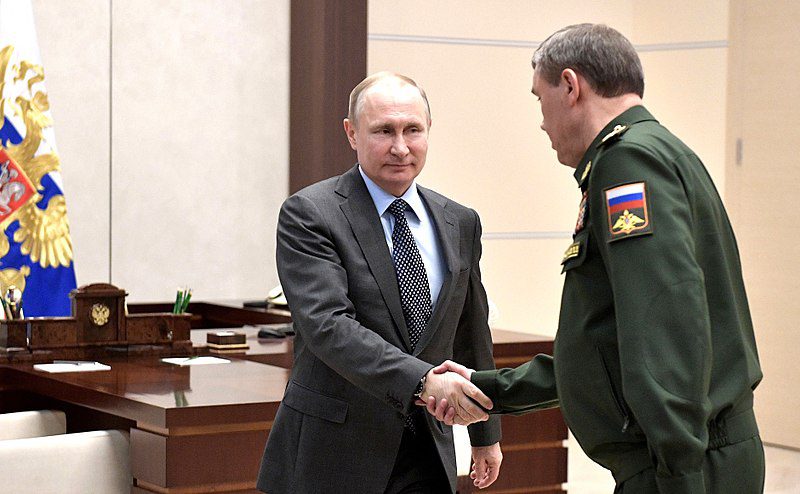
Russia has announced a change in its high command, which raises many questions in Ukraine and among Western observers. General Valery Gerasimov has just been appointed as the new commander-in-chief of the Russian forces engaged in Ukraine, replacing General Sergei Surovikin, who was appointed in November. This change comes at a time when the scenario of a new Russian offensive is increasingly likely. Gerasimov is the fourth military officer to be appointed to this post since the beginning of the war.
The appointment of his predecessor Surovikin in November provoked many comments because of his sulphurous reputation as a military commander who had distinguished himself in Afghanistan, Chechnya, and Syria, and is known for his ruthlessness. As a hardliner, he was able to send a signal to his countrymen that Russia was back in control, at a time when the Russian army was withdrawing from Kherson. In the days following his appointment, he was blamed for the massive bombing of Ukraine’s water and electricity infrastructure.
Surovikin has now been demoted to deputy, while the top job with respect to Ukraine goes to Valery Gerasimov. This is not a complete downgrade for Surovikin, since Gerasimov was already Surovikin’s superior. Gerasimov is considered one of Vladimir Putin’s most loyal followers. Aged 67, he began his career during the Soviet period as an intelligence officer. Appointed chief of the general staff of the Russian armed forces and first deputy minister of defence by President Vladimir Putin in 2012, he still holds this position, which makes him the highest-ranking officer in the Russian armed forces. He was one of the few who knew about the plan to invade Ukraine before it was carried out. The Russian defence ministry justifies the reshuffle by a “broadening of the scope of the missions to be accomplished” and the need for “closer interaction between the components of the armed forces.”
The hopes placed on Surovikin in November were high. He is probably now paying for his lack of convincing results, especially for the death of the Russian soldiers in Makiivka on New Year’s Eve. But his record is not entirely to be dismissed because he was able, despite everything, to skillfully consolidate Russian defences and strengthen the Russian presence around Luhansk, according to Dimitri Minic, a researcher at the French Institute of International Research interviewed by France info.
Gerasimov’s authority is now being called upon to restore order and coordination among the various components of the Russian presence in Ukraine: the regular army, Chechen forces, Wagner-type paramilitary groups, and local separatist forces. Far from acting in a collective way, these different forces are in fierce competition with each other, as shown by the situation in Soledar, where the Wagner group is claiming the lead in that advance—an assertion that has been denied and brought back to its proper proportions by the Russian government.
The promotion of Gerasimov makes it possible to restore the primacy of authority to the ministry of defence, and office which is vigorously criticised by nationalists groups expressing themselves on Russian social networks and encouraged by Prigozhine, the head of the Wagner group, and Kadyrov, the head of the Chechen forces. The task is delicate because Gerasimov is considered responsible for the failures of the Russian army in Ukraine by this nationalist fringe.
For the time being, it seems difficult to know which strategic direction Russian action will take in the coming weeks. The nomination of Gerasimov highlights the tensions and rivalries between the different political and military ‘parties,’ against which the Kremlin always intends to have the last word.
